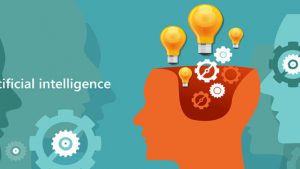The State of AI: Between Innovation and Ethical Dilemmas

Artificial Intelligence (AI) is no longer the technology of the future—it’s here, transforming industries, changing the way businesses operate, and reshaping society. However, with its rise comes a critical question: how do we harness its power responsibly?
AI promises incredible advancements in productivity, automation, and insight generation. Still, as we rush to deploy these technologies, the ethical implications become more pronounced. In this exploration, we’ll address the landscape of AI adoption, the categories of organizations leveraging it, the emerging ethical concerns, and what the future holds.
Current AI Adoption: A Widespread but Uneven Landscape
AI’s adoption spans a variety of industries, each using the technology for different purposes. From improving customer experiences to driving operational efficiencies, AI applications are varied, but the level of sophistication and scale of implementation is not uniform.
- Technology and IT Sector
In the tech world, AI is the backbone of many innovations—whether it’s the automation of cloud services, cybersecurity, or product development. For instance, tech companies like Google, Microsoft, and Amazon use AI to power their data centers, optimize supply chains, and offer personalized experiences.
- Stats from Gartner: “By 2025, 70% of organizations will shift from pilot to full-scale AI deployment, but 40% will fail to achieve expected business value due to lack of talent, operational and data maturity.” This reflects the tech sector’s struggle to bridge the gap between AI’s potential and its real-world implementation.
- Healthcare
AI in healthcare is transforming diagnostics, treatment planning, and patient care. From predictive analytics that identify at-risk patients to AI-powered robotic surgery, the healthcare sector is deeply invested in AI’s promise.
- AI for Diagnostics: Algorithms are increasingly being used to analyze medical images or genetic data, offering more accurate predictions than traditional methods.
- Personalized Treatment: AI models can analyze vast datasets to provide personalized care recommendations, optimizing treatment based on the unique needs of each patient.
- Finance and Insurance
In finance, AI is deployed for fraud detection, algorithmic trading, credit scoring, and customer service automation. Machine learning models can detect anomalous transactions or forecast market trends, giving financial firms a competitive edge.
- AI in Fraud Prevention: Financial institutions like JPMorgan Chase and Mastercard leverage AI to monitor transactions for unusual patterns and predict fraudulent activities in real-time.
- Manufacturing and Retail
AI is revolutionizing manufacturing with predictive maintenance, supply chain optimization, and process automation. In retail, AI enables hyper-personalization, from recommending products to dynamic pricing strategies.
- Supply Chain Optimization: AI models in manufacturing forecast demand, optimize stock levels, and streamline logistics. In retail, brands like Walmart use AI to manage inventory and predict consumer behavior more accurately.
- Public Sector and Governance
Government agencies are increasingly adopting AI for predictive policing, resource allocation, and public health initiatives. However, the public sector’s AI adoption is often slower, hampered by budget constraints and bureaucratic challenges.
The Ethical Dilemmas of AI: From Bias to Privacy Concerns
AI’s widespread implementation brings with it a host of ethical challenges. From algorithmic biases that discriminate against minorities to concerns over privacy violations, the ethical landscape of AI is complex and, at times, problematic.
Algorithmic Bias
One of the most pressing ethical concerns in AI is the issue of bias. AI systems are often trained on historical data that may reflect societal inequalities. If the data used to train algorithms is biased, the outcomes will be too.
For example, in criminal justice, predictive policing algorithms have been found to disproportionately target minority communities. Similarly, facial recognition systems have been criticized for inaccuracies in identifying people of color.
The risk of reinforcing discrimination through AI is a major concern. Gartner’s findings support this:
“By 2025, 60% of AI projects will fail to meet ethical or regulatory standards due to insufficient governance frameworks.” — Gartner, 2023
Privacy Violations
As AI systems gather and process massive amounts of data, the issue of privacy becomes more urgent. Many AI applications, particularly in sectors like healthcare, finance, and retail, require access to sensitive personal information. Without robust data protection policies, this opens the door to misuse, hacking, or unintended surveillance.
Accountability and Transparency
AI’s “black box” nature—where decision-making processes are often not fully understood even by the developers themselves—raises questions about accountability. Who is responsible if an AI system causes harm? Can organizations defend AI-driven decisions when they can’t explain how the model arrived at its conclusions?
For example, in credit scoring, AI may decide to deny loans based on historical patterns. If an applicant challenges the decision, how can a company explain the reasoning behind the rejection, especially if the algorithm is opaque?
The Risk of Job Displacement
As AI continues to automate tasks across industries, concerns about job displacement are rising. In manufacturing, autonomous robots can replace human workers on assembly lines. In customer service, chatbots and virtual assistants handle many of the tasks that once required human interaction. While AI can improve efficiency, the social consequences of widespread job loss are significant.
The Future of AI: What Lies Ahead?
The future of AI holds both immense promise and daunting challenges. While the technology is poised to grow exponentially, how it’s deployed will determine whether its impact is positive or harmful.
- AI as an Augmented Workforce
The future is likely to see a shift from AI replacing humans to AI augmenting human abilities. Rather than robots replacing workers, AI will likely be integrated as a tool that enhances human decision-making.
- Example: In healthcare, doctors may rely on AI-powered diagnostic tools, but the human element of patient care, empathy, and decision-making will remain crucial. AI will become a collaborative partner, enabling workers to perform tasks faster and more accurately.
- AI Governance and Regulation
As AI permeates more aspects of our lives, regulating its use will become more important. By 2025, governments are expected to introduce stricter regulations around AI ethics, ensuring that systems are transparent, fair, and accountable. As a result, organizations will need to adopt AI governance frameworks to comply with these evolving standards.
- Gartner’s Insight: “AI ethics and governance will be a top priority for organizations as they scale AI solutions. By 2025, 60% of AI projects will have failed to meet ethical or regulatory standards due to insufficient governance frameworks.” — Gartner, 2023
- Autonomous AI and Generalized Intelligence
Looking farther into the future, we might see the rise of autonomous AI systems capable of making independent decisions without human oversight. While we’re currently far from achieving Artificial General Intelligence (AGI), advancements in machine learning and neural networks may push us closer to that reality.
However, this raises critical questions about control, safety, and ethics. Who will control AGI systems? How do we ensure that they align with human values? These are challenges that will need to be addressed as AI evolves.
Conclusion: A Balancing Act Between Promise and Peril
AI holds tremendous potential to improve lives, streamline processes, and enhance business outcomes. Yet, the excitement surrounding AI often overshadows the inherent ethical challenges that come with it. From bias in decision-making to privacy concerns and the risk of job displacement, these issues are not minor inconveniences—they are fundamental questions that must be addressed.
The path forward will require balancing innovation with responsibility. As organizations continue to deploy AI, building robust ethical frameworks, improving transparency, and ensuring accountability will be paramount. AI’s future is not determined solely by its technological capabilities, but by the choices we make today about how to use and govern it.
By investing in AI responsibly, both businesses and society at large can unlock the full potential of this transformative technology while minimizing its risks.













